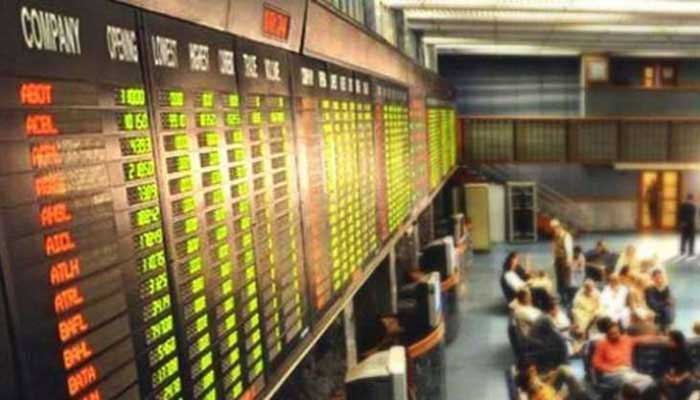Pakistan stocks take a battering as IMF shadow looms large over revenue shortfall

Pakistani stocks took a battering on Friday as fears of harsh measures to curtail a revenue shortfall and a possible reduction in subsidies extended to the power sector loomed large on investors’ minds.
With the International Monetary Fund (IMF) turning up the heat on Islamabad to arrest slippages and close an expanding shortfall, the Pakistan Stock Exchange’s (PSX) benchmark KSE-100 index was down 1.43% or 580.77 points to close at 40,143.63 points.
Similarly, the KSE-30 fell 1.38% or 258.94 points to end at 18,454.51 points.
“Stocks closed sharply lower […] on investor panic over Moody’s report amid likely subdued projected growth owing to a high interest rate,” said analyst Ahsan Mehanti of Arif Habib Corp.
Uncertainty over how the talks between Pakistan and the IMF will conclude, coupled with concerns over ongoing foreign outflows and higher inflation, played havoc at the bourse, Mehanti added.
Of 355 active scrips, only 47 gained, as many as 291 lost, and 17 were unchanged. Volumes hit 193.54 million shares, as compared to 127.8 million in the previous session.
Shahab Farooq, director research at Next Capital, said, “The market took a battering as fiscal constraints came under the limelight. IMF’s mounting pressure on Pakistan to increase revenue collection will eventually be [a cause for] inflationary [pressure], which has again raised concerns of a further delay in monetary easing”.
Salman Ahmad, head of institutional sales at Aba Ali Habib Securities, said, “Higher inflation and IMF pressure to bridge revenue shortfalls have been the major reason behind this slide”.
“Higher inflation may lead to a hike in benchmark interest rate, which will force institutions to sell their shareholdings and park their funds in bonds, which are bound to rise under the current scenario,” he said.
Furthermore, he said the upcoming week might see a sigh of relief because of a final nod from the IMF, while eyes are also set on an important FATF (Financial Action Task Force) meeting to be held in Paris.
“Any extension and or some waiver from the IMF may help boost sentiment in the market,” Salman added. Financial markets, according to a leading trader, were abuzz with the new measures the government was likely to take to fill the revenue shortfall because lower revenue collection might increase the fiscal deficit to the all-time high of Rs4,000 trillion.
Moreover, a report from the Economist Intelligence Unit which said that inflation was expected to remain elevated in the coming months further dampened investors’ mood.
Arif Habib Limited in a note said, “The market saw heavy sell-off that aggravated in the second session [with benchmark index] losing 678 points during the session and closing at -580 points (unadjusted)”.
Yields for 3-year and 5-year bonds were also observed to be trading at higher yields, which caused concerns amongst investors due to expectations of higher inflation and a delay in the possible rate cut, the brokerage house added.
Related News

ICCI, Thai embassy agree to fast-track trade, tourism and investment cooperation
B2B meetings, delegation exchanges key to brining Pakistani-Thai business communities closer: Sardar Tahir Mehmood ISLAMABAD,Read More

Massive protest planned for Dec 22 against ‘Anti-Business’ tax move
ISLAMABAD, DEC 15 /DNA/ – The business community of the federal capital has categorically rejectedRead More


Comments are Closed